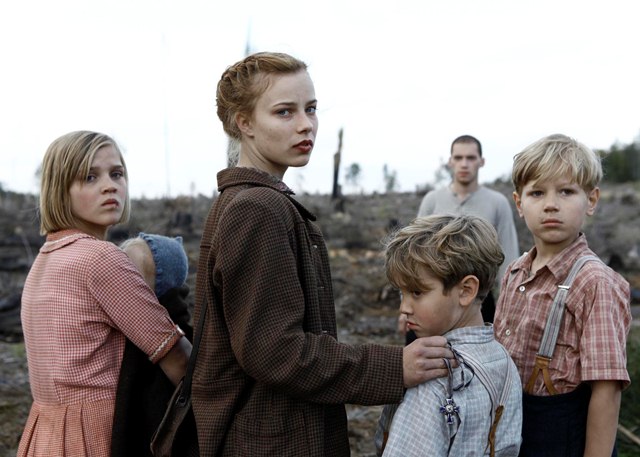CHICAGO – In anticipation of the scariest week of the year, HollywoodChicago.com launches its 2024 Movie Gifts series, which will suggest DVDs and collections for holiday giving.
Challenging ‘Lore’ Features Captivating Central Performance
 Rating: 4.0/5.0 |
CHICAGO – “Lore,” opening this weekend at the Landmark Century and Landmark Renaissance theaters here in Chicago and now playing in New York and Los Angeles, is a very unique coming-of-age film. It features a star-making performance from its lead, a girl who learns the truth about not just the brutality of life but the dark secrets of her family and country. The film sometimes crosses the line into melodrama when a more subtle approach would have served it better and the end comes too abruptly but enough cannot be said about its leading lady, a truly captivating actress at a very young age who should be an international star. Director Cate Shortland’s “Somersault” introduced the world to the great Abbie Cornish. The introduction here feels just as vital to the form.
It is 1945 in Germany and World War II has just ended. The setting and time period alone is one not often explored by filmmakers. Hollywood has painted a false portrait of WWII ending and Germany responding almost as if it never happened. Of course, there were wounds to heal and crimes for which to pay. “Lore” captures a country in the midst of picking itself up and moving forward after suffering the most devastating loss a country can suffer — a wartime one.

Lore
Photo credit: Music Box Films
It centers on a girl named “Lore” (Saskia Rosendahl), the oldest of five children whose parents were SS Nazi royalty. Lore clearly did not know the full extent of her parents’ involvement or even the full details of what happened during the war throughout her country. She seems to be at the age where she believed her parents must have been in the right and supported Hitler, as everyone in the country, especially young people, were taught to do. When the war ends, her parents are clearly distraught. Her father says they’ll come back to the mansion in which they live but the fact that he shoots the dog before they leave is not a good sign. And her mother seems nearly catatonic, staring off into the distance for the Allied soldiers to come and take her away.
Which they do. Lore is left with four siblings, including a breastfeeding baby, in a country devastated by not just war but a battle that they lost. People wander with dead eyes while houses show the signs of intense combat. Lore takes the children that are essentially now hers and treks north to find her grandmother. She meets a refugee along the way named Thomas (Kai Malina, “The White Ribbon”) and her worldview is challenged even further. She has been raised to hate people like Thomas. And now she needs him to survive.
Lore
Photo credit: Music Box Films
The storytelling in “Lore” is riveting. One can hardly blame the heroine of this story for the crimes of her parents or country and yet it is certainly not simple to feel sympathy for someone blind to genocide or who enjoyed wealth that came from horror. This is a complex, challenging script on a moral level, that uses this incredibly unique time in German history to tell the story of a girl not just coming to life sexually (she first seems fascinated by her parents’ sex life and later by her clear attraction to Thomas) but intellectually and morally as well.
Clearly, it’s a hell of a role for the right actress and Rosendahl is the RIGHT actress. She is not only beautiful but carries the weight of what she’s going through in “Lore” in completely believable, moving ways. She is the center of this film, in nearly every scene, and she never hits a note that feels artificial, even when the script veers into the melodramatic. Director Cate Shortland allows that to happen a bit too often, whether it’s in an overdone bit of musical composition or pretentious visual composition when a more realistic tone would have proved stronger, but Rosendahl always brings back to reality. The film opens with her in a bathtub singing a child’s rhyme and forces her to very much become an adult by film’s end. Rosendahl never once betrays that arc as anything less than real. She’s a revelation and reason alone to see this challenging, complex film.
 | By BRIAN TALLERICO |


